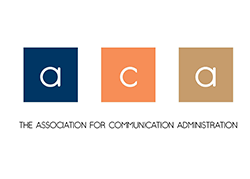Abstract
This article highlights the problem posed by cultural diversity to communication in North America. Our motive in posing these questions is not to present a whirlwind tour of diversity, but simply to explore what we consider to be some important issues that are driving the human caravan in North America's shift from monoculturalism to multiculturalism. Answers to such questions should tell us a great deal about how to communicate in the next century. The essay is divided into three sections. Part one explores the framework of creolization and its implications for the communication discipline. Part two examines some social and cultural factors that possibly will shape the nature and content of persuasion in the twenty-first century. Finally, part three continues the focus on persuasion, with emphasis on the intersection between deterritorialization and diversity. We end with a research agenda that we hope will prove useful in the field of communication. In our movement toward diversity, what will be the resultant society with such a rapid transformation from a largely Anglo-Saxon culture in the U.S., for example, to a creolized culture? Creolized cultures can be the resultant diverse culture of a country such as the U.S. given the emerging numbers of Asians, Hispanics, and other immigrants from non-Western cultures who are "merging" their indigenous cultures with that of their new host culture in the U.S.
Recommended Citation
Calloway-Thomas, C., & Garner, T. (2000). A confrontation with diversity: Communication and culture in the 21st century. Journal of the Association for Communication Administration, 29(1), 145–154.


